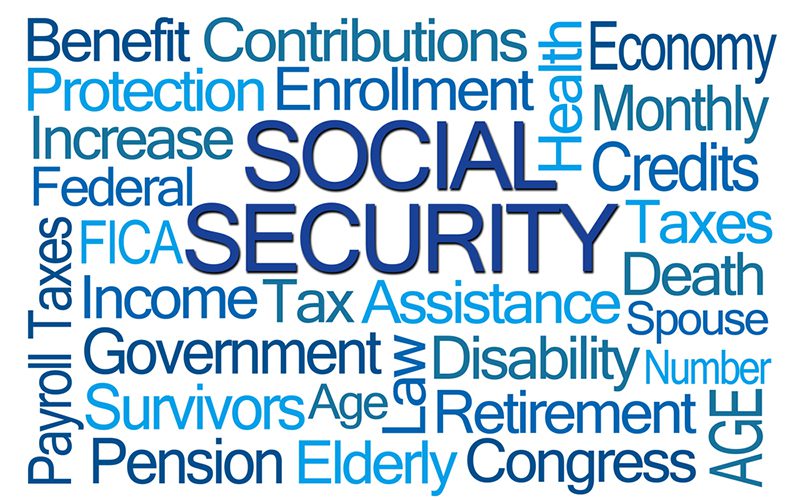
Being injured on the job or recently suffering a serious medical condition that makes it impossible for you to work can open the door to receiving benefits from a variety of different programs. Understanding how these works, however, and initiating the right applications, is not always easy. Whether you’re looking for information about state disability programs, private disability programs, or federal Social Security disability, this article will help you understand your next steps.
If your family or you personally were relying on your income to pay your bills, it can be a significant financial hardship to realize that your condition is serious enough that you won’t be able to go back to work. Since there are a few different programs in place to help you when your diagnosis makes it difficult for you to maintain or regain employment, you need to do the necessary research to decide what route to take, possibly with the help of a social security disability attorney in New Mexico to guide you through the process.
Private Disability Programs
If you were employed at the time of your diagnosis or you maintained your own private disability policy, you could be eligible for benefits from that carrier. These insurance policies are managed by big insurance carriers and all have different requirements and eligibility rules. When you first apply for this insurance coverage, you might be requested to go to a medical exam, for example. Once you have been approved for this coverage, you’ll want to read the fine print on your limitations and payouts so that you know what you need to do if you do need to file a claim for benefits.
Private disability companies are different from federal Social Security disability in that you can be partially disabled and still get benefits. Federal benefits mandate that you must be fully disabled and unable to work in order to get benefits. Another key difference between those two programs is that Social Security disability does not have limits on how long they will make payments to you. If you remain fully disabled and can’t go back to work, you will most likely continue to receive your payments. However, your private disability insurance carrier likely has a maximum time limit under which you are eligible to receive disability payments.
This means your carrier can legally stop payments to you even if you remain disabled beyond that time limit. In some situations, you might be able to get benefits from both Social Security disability and a private disability insurance plan. If you are getting Social Security benefits for disability, your private carrier might decrease the amount they pay to you in order to reflect the fact that you’re already getting federal payments. Private disability programs can be a good short term fix if you’re eligible.
State Benefits
Some states also have short-term disability benefits available to employees when they can no longer work, but in most cases, these are awarded on a short-term basis. There are five states that have sponsored disability plans: California, New York, Rhode Island, New Jersey, and Hawaii. Since these are all administered at the state level, there are different requirements for each one.
Other differences from one state program to another include how long you must be disabled before you can start an application for benefits, what portion of your salary is paid out by the benefit plan, and how long you must have worked for your employer in order to get those benefits.
Social Security Disability
Due to the long-term nature of Social Security disability payments and the lack of either a state-sponsored or a private disability plan, most people who are looking to apply for disability benefits want to do so at the federal level. The Social Security Administration manages people who have total disability with two payment programs: SSDI and SSI. SSI is available to those disabled people who have never worked and therefore not accumulated the proper credits to get SSDI. Since SSDI is pay by taxes, only eligible adults with a work history can start an application for this program.
In order to submit an application for federal disability benefits, you need to show that you cannot adjust to a new work environment due to your disability, that you cannot return to your previous job because of this disability, and that your disability is severe enough that you won’t be able to go back to work for at least one year.
No matter what route you think is right for you, it can be overwhelming to follow all of the rules and requirements to submit your application successfully. This means that you needto be prepared to have all of your medical records organized and present a very strong case that your disability meets all the terms of the relevant program.You should file for disability benefits under your chosen program as soon as you possibly can because it can take time for your application to be received and reviewed in full.
What to Do Next
If you need to start an application for disability benefits, it’s important to increase your chances of success by doing the necessary preparation and organization in your case. Doing so can help you avoid being denied the first time around or can help you if you’ve already been denied and need assistance with your appeal.
Hiring a New Mexico SSDI attorney could be your first step towards getting the benefits that you need to compensate you for your injury or medical condition. If you are denied when you submit your application, do not assume this is the end of the road. Depending on which kind of disability you applied for, you might be able to submit an appeal, but you should be ready to do this immediately to protect your right to keep fighting for those benefits.
With a serious disability, your focus needs to be on your medical care and addressing your symptoms. Allow a knowledgeable lawyer to help you with federal disability programs, state disability programs, or private disability programs can make this process easier for you.

